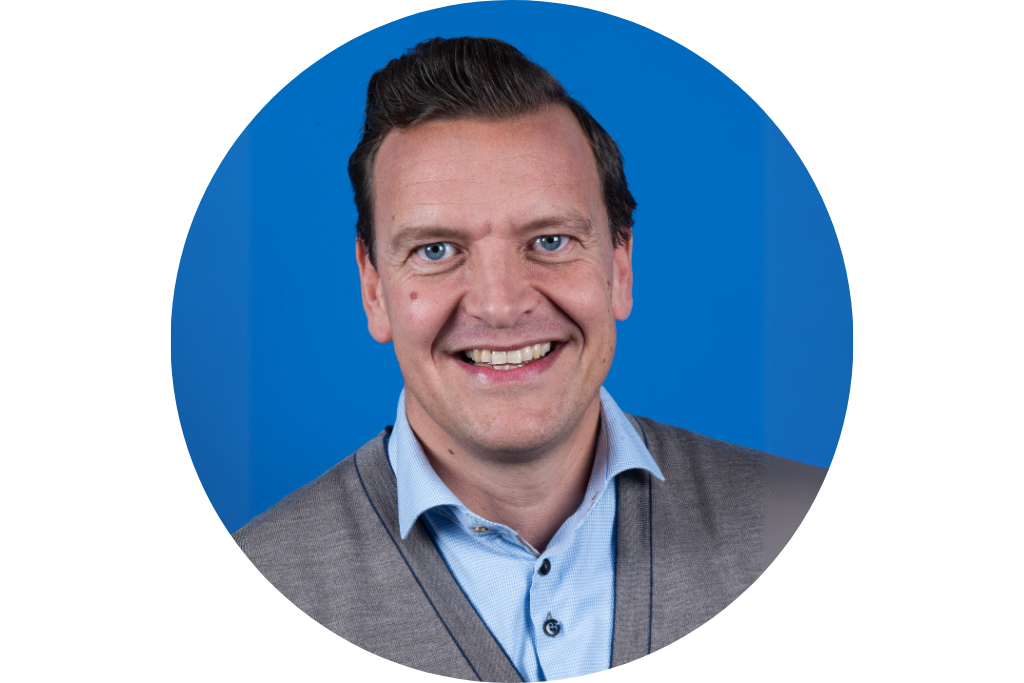
Professor of Restorative Justice & Desistance from Crime
- Restorative Justice & Desistance from Crime
‘There’s more to people than the crime they’ve committed’
Bart Claes, professor of Restorative Justice & Desistance from Crime
If you commit a serious crime, you go to prison – that’s been the logic underpinning our penal system for over 150 years. But according to Professor Bart Claes, incarceration alone doesn’t do justice to all the people who are harmed by a crime. “Crime has a huge impact. Not just on the victim, but also on the perpetrator and those around them, such as their parents, partner and children. The perpetrator may be punished, but that doesn’t repair the damage done to these people. The only way to do that is by focusing on their needs and recognising the necessity of helping them. To support their recovery, it’s essential that offenders remain connected to society while in prison.”
Claes was a social worker in juvenile institutions for ten years and worked as a mediator between victims and offenders in Brussels prisons. He received his PhD from the Vrije Universiteit Brussel for his research on recovery-oriented interventions for long-term inmates in high-security penitentiaries. For this study of everyday life behind bars, he spent over a year and a half in the prison system. His experiences shaped his view of humanity. “People who commit a crime are often reduced to that one act: they become a rapist, or a murderer. Through my research, I’ve learned to see them as full human beings. Like anyone else, they have weaknesses and problems, but they also have talents, fears and dreams. Despite everything, they’re entitled to happiness and a future. And the same is true for crime victims who are left to deal with the consequences of their experiences. They’re much more than victims – they’re also parents, partners, friends and professionals.”
Repairing all damage
Claes’s work centres on people, by which he means everyone who is affected by a crime. “Transmural recovery-oriented interventions provide an international framework and approach, focusing on repairing all damage. It’s about addressing the experiences and needs of victims, as well as those of perpetrators and loved ones,” he says. “For a rape survivor, it can be healing to hear from the perpetrator why this happened to her of all people, and what responsibility the perpetrator is willing to take to repair the damage. And what does the partner of the perpetrator need now that he’s in prison and she has to take care of the family by herself? How are the children, who are ashamed that their father is locked up, but also miss him? It’s important for their development to restore the parent-child relationship. And don’t forget the perpetrator himself: how does he look at the consequences of what he’s done, and what does he need to stop committing crimes? On all those fronts, there’s damage to repair.”
Preventing recidivism
Claes is convinced that recovery-oriented interventions can help prevent crime. After completing his PhD, he continued his research at the University of Sheffield, exploring how this approach could be used to encourage inmates and their families to build new lives for themselves, away from the world of crime. “When people have committed a serious offence, keeping them in isolation for years is not going to prevent recidivism. Instead, we need to teach them how to behave in society, which requires a transmural approach. A smooth transition from prison to normal life increases the chances of successful rehabilitation, and that’s crucial if you want to stop crime. Everyone benefits from that.”
Claes does understand the calls for harsher sentences he sometimes hears. “When you’re sitting across from the parents of a murdered child, or someone who has suffered years of abuse in their youth, it’s impossible not to be deeply affected. Of course they want the punishment to be severe. But they also want to prevent others from having to go through the same thing, which you don’t tend to achieve through punishment alone. It takes more than that.” As a society, Claes believes, we should use our heads as well as our hearts, implementing demonstrably effective interventions while also doing justice to the feelings of everyone involved. “That’s where professionals can make a difference. Their work revolves around tapping into the strength of inmates, working on areas for improvement, inspiring hope and holding them to account. The will and belief that you can live a different life – those are crucial when it comes to stopping criminal behaviour.”

